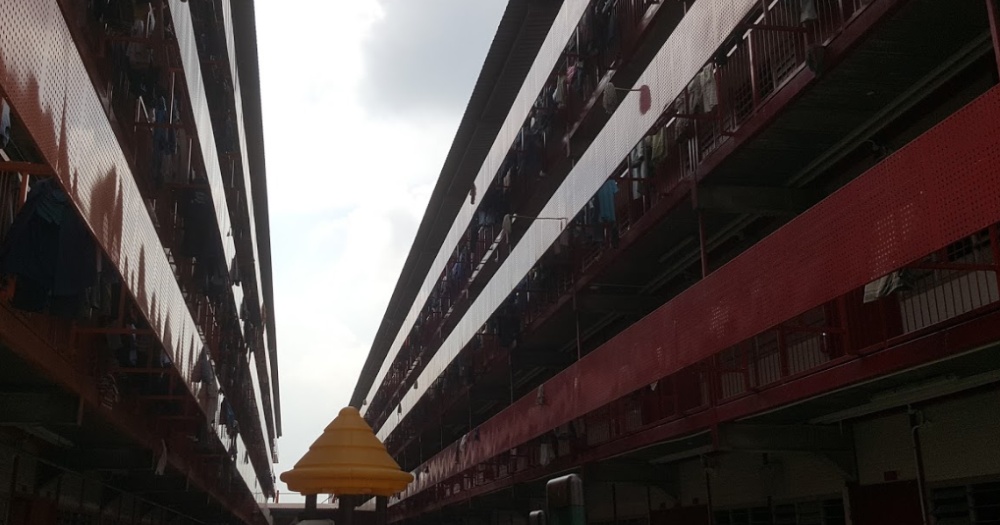All foreign workers staying in all dormitories in Singapore will stop going to work, and will no longer be allowed to enter or leave their dormitory campuses, in a move to actively contain the spread of Covid-19 in dormitories.
This kicks in at 11:59 pm on Tuesday (April 21, 2020), a measure announced by Minister for Manpower Josephine Teo at a press conference on Tuesday.
Previously, a good number of migrant workers in these dormitories were continuing to carry out work in essential services during the Circuit Breaker period.
Prior to this decision, healthy workers in essential services were shifted out of the dormitories to minimise cross-infection.
180,000 workers and dependents placed on mandatory SHN
Besides the dormitories, the government is turning its attention to migrant workers living in shophouses, private housing and HDB flats.
About 180,000 Work Permit holders and S Pass holders who work in the construction sector, including their dependents, have been placed on mandatory Stay-Home Notice (SHN) from April 20 to May 4.
According to the MOH, this was a precautionary measure to minimise the risk of further community transmission of Covid-19.
"This was something that we have planned for, and now we are going to implement it," said Teo.
For companies that were previously granted exemptions allowing them to operate, Teo said the Ministry of Trade and Industry (MTI) will be notifying them to suspend their work for this period.
Teo acknowledged that adjustments would have to be made by these companies, but she said it is a "necessary measure to reduce the risk of transmissions".
FAST teams deployed to dormitories
Teo also said that previously, Forward Assurance Support Teams (FAST) have been deployed to all 43 purpose-built dormitories.
A further 26 teams were formed to look after factory-converted dormitories.
Medical posts have been assembled at all 43 purpose-built dormitories, while mobile medical teams have been assembled to support factory-converted dormitories.
These FAST teams assist in setting up medical facilities and triage clinics in order to make sure workers get adequate medical attention and care.
They will also help to ensure that the needs of migrant workers are met, such as food, water and masks, and that their living conditions are satisfactory and clean.
Inter-agency taskforce to provide Ramadan meals for workers
With Ramadan around the corner, Teo announced that the Inter-agency taskforce will also collaborate with caterers and operators of the purpose-built dormitories to provide pre-dawn breakfast meals for workers.
"This is very important to our Muslim friends, and we want to make sure they are properly taken care of when Ramadan begins," said Teo.
Top image from Alamin Hossain, Google Maps
If you like what you read, follow us on Facebook, Instagram, Twitter and Telegram to get the latest updates.
